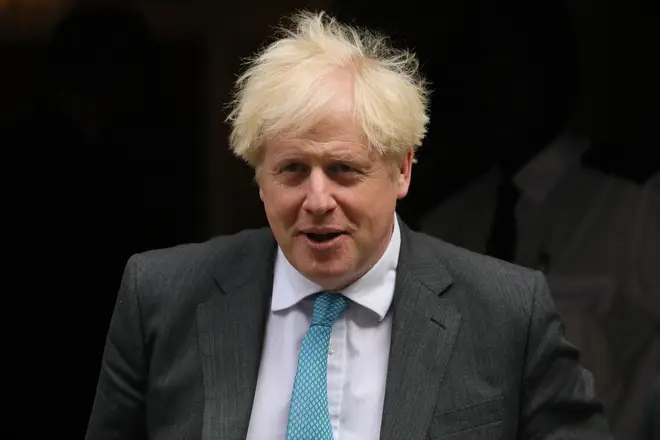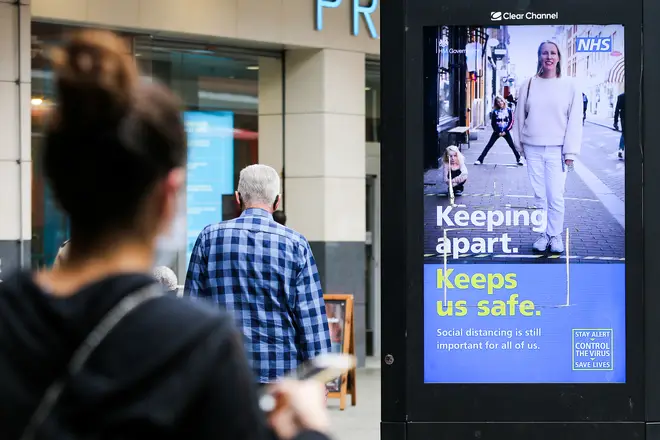
Oli Dugmore 4am - 7am
20 September 2020, 07:25

People who fail to self-isolate when required will receive fines of up to £10,000 under emergency plans drawn up to fight the surge in coronavirus cases.
Those on low incomes and benefits will also be eligible for “stay at home” incentive payments of £500 to cover lost earnings for having to quarantine.
The fines, set to come into force under law in England from 28 September, will start at £1,000, rising to £10,000 for repeat offenders.
Ministers are in discussion with the devolved administrations for Scotland, Wales and Northern Ireland about extending the significant powers UK-wide.
Announcing the sweeping new “carrot and stick” package, Prime Minister Boris Johnson said: “The best way we can fight this virus is by everyone following the rules and self-isolating if they’re at risk of passing on coronavirus.
“And so nobody underestimates just how important this is, new regulations will mean you are legally obliged to do so if you have the virus or have been asked to do so by NHS Test and Trace.

“People who choose to ignore the rules will face significant fines. We need to do all we can to control the spread of this virus, to prevent the most vulnerable people from becoming infected, and to protect the NHS and save lives.”
Police will check compliance in Covid-19 hotspots and among groups considered to be “high-risk” as well as following up reports from neighbours with suspicions.
Those contacted by NHS Test and Trace and told to self-isolate for being contacts of someone infected with Covid-19 also face the fines for falling foul of the rules.
Mr Johnson warned on Friday the UK is “now seeing a second wave” of Covid-19, adding it was “inevitable” that it would arrive. As infections spiral, he is said to be considering announcing fresh national curbs as early as next week.
Ministers are still looking at further restrictions, including a temporary two or three-week “circuit break” national shutdown in an attempt to break the chain of transmission.
The move could see pubs and restaurants ordered to close or face a 10pm curfew, while socialising between households could be banned.
A four-month high of 4,422 confirmed cases were recorded in the 24 hours to 9am on Saturday, while the UK’s R rate - the reproduction rate of infection - has risen to between 1.1 and 1.4. This means every 10 people who test positive go on to infect 11 to 14 others.
Read more: UK coronavirus cases hit four-month high with 4,422 rise
Read more: Businesses warn of wipeout if national lockdown returns

Boris Johnson says second wave of coronavirus ‘inevitable’ in the UK
The new powers come amid growing concern that many are simply ignoring the self-isolation requirement because of a lack of enforcement.
Research by the Government's Scientific Advisory Group on Emergencies (Sage) found that only 25 per cent of people told to self-isolate had not left the house in the 24 hours before they were questioned.
England's chief medical officer, Professor Chris Whitty, and chief scientific adviser Sir Patrick Vallance reportedly told the PM that the UK has the worst compliance with self-isolation rules in Europe.
However, it emerged earlier this month that just 34 similar £1,000 fines had been issued to travellers for breaching the two-week quarantine rule on return from "red list" countries.
The new incentive for lower income families will mark a significant rise on the £13-a-day trial scheme for self-isolating launched last month.